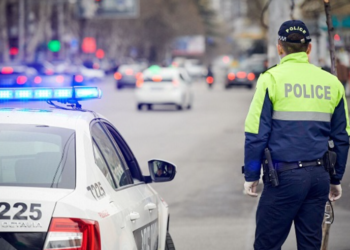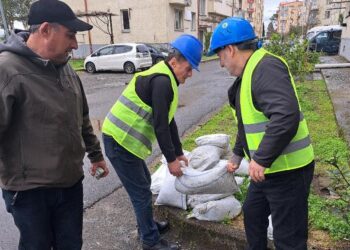ADB BLOG
Managing travel speeds on the roads of the Asia and the Pacific will save lives and avoid economically costly, often debilitating, injuries. Recent studies show that each 1% drop in average speed will deliver a 4% decrease in crash deaths and 3.5% fewer casualties.
This could help lower the staggering annual toll of 1.19 million lives lost to road traffic accidents worldwide. In Asia and the Pacific, more than 2,000 people lose their lives in road crashes every day and many more sustain serious life-changing injuries, according to Asian Development Bank estimates.
Policies designed to reduce road travel speeds are usually focused on education and enforcement. To bring about sustained change, road design and features as well as vehicle technology are also important.
Here are some of the most effective ways that policymakers can use to lower road traffic speeds in their countries:
Enforcement and behavior change. Enforcement can be effective if drivers believe that they will be caught for speeding and believe that they cannot avoid the penalty. Three proven enhancements increase these beliefs and reduce speeding (driving at speeds above the speed limit).
First, the use of speed cameras, including mobile speed cameras, if the country is ready for them, enhances the driver’s belief that the penalty cannot be avoided. The introduction of speed cameras should be prominently publicized to the community weeks before they are deployed.
Second, public education and campaign messages should focus on the risk of being caught for speeding and the significant penalties, not on crash risk.
Third, minimal ‘enforcement tolerance’ should be adopted, so that drivers are penalized for speeding at 3 km/h or 4 km/h above the limit, rather than setting the tolerance at 8 km/h or even 10 km/h above the limit. This change should also be strongly publicized weeks in advance of implementing it. Given that these changes might be unexpected for many, it is important to clearly communicate the supporting evidence and the psychological rationale behind these adjustments.
Road design and speed-managing infrastructure. Many road design features are proven to manage speed, including speed humps or bumps, chicanes, raised platform crossings, lane narrowing, gateway treatments, and well-designed roundabouts. These are all shown to reduce speeds and reduce numbers of serious crashes.
Lower speed limits are also needed, as reflected in global trends to best practice with urban speed limits being lowered in many countries from 50 km/h or 60 km/h to 40 km/h and now 30km/h and even 20km/h in areas with pedestrians. Asia-Pacific countries are making increasing use of 30km/h speed limits, though much wider application is urgently needed.
Speed-managing infrastructure such as speed bumps, roundabouts or traffic circles are more powerful and sustainable than enforcement. Such traffic calming measures are more effective in reducing speeds than relying on drivers to believe they will be caught and to slow down. Traffic calming interventions work all day, every day and cannot be avoided or disputed by the driver, giving them a direct role without relying on a compliant driver.
Vehicle technology. Speed managing vehicle technology is becoming more common, with the increasing availability of GPS (Global Positioning System) in vehicles which can let drivers know the speed limits at its current location.
This can take various forms: speed governing which prevents a vehicle from exceeding a particular maximum speed; GPS-based speed limiting to the actual speed limit; and GPS-based warnings to the driver when exceeding the limit. Technologies that limit speeds, rather than just warn the driver, are the most powerful.
Reducing speed through modal shifts and city planning. Speeds can also be reduced through sound city planning policies combined with incentivizing shifts to transport modes other than personal vehicles. Opportunities include focusing development of commercial areas around public transport nodes, bus rapid transit systems replacing some lanes on multi-lane roads, and city planning to reduce the travel required to access services.
Lower speeds deliver multiple benefits including to the economy. These can be achieved through road design and infrastructure, vehicle technologies, urban planning, modal shifts, and effective deterrence.
Benefit to cost ratios for many speed reducing interventions show that they are excellent investments for governments. Given the benefits of lower speeds, and their cost-effectiveness, implementing stronger speed management is not a question of ‘Can we afford to do this?’ but ‘Can we afford not to do this?’
By Ritu Mishra and Soames Job for ADB.
Ritu Mishra is a transport specialist at the Asian Development Bank. Soames Job is CEO and Principal of Global Road Safety Solutions Pty. Ltd. The views expressed are those of the author and do not necessarily reflect the views of the ADB, its management, its Board of Directors, or its members.














